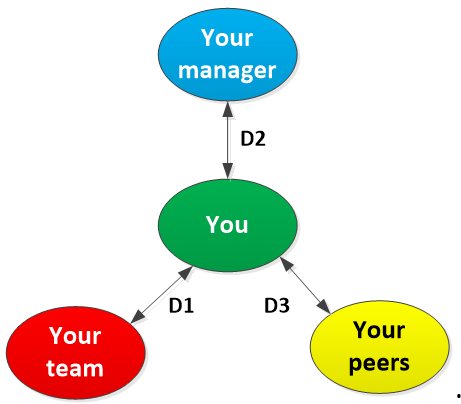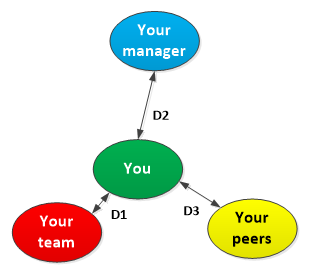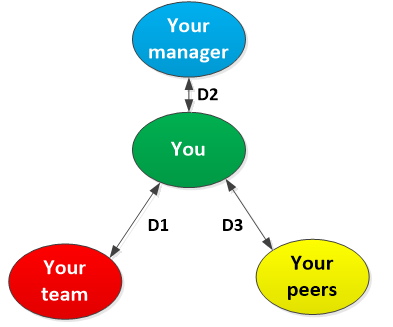A recently promoted colleague brought up a problem about her changed relationship with her team. Something has changed, while she still treated herself as “one of them.” Well, not really. Leadership comes at a price, and this is not a new thing. “Uneasy lies the head that wears a crown.” (Shakespeare - Henry IV. Part II, 1597) One might argue that a vice president is not an executive (yet), but the underlying problem is similar: you are NOT just one of them.
Let’s have a look at the definition of a leader. You are a leader if you are followed by people at will, in some cases against their own basic instinct to flee, eg. when you lead a march through the Edmund Pettus bridge despite the imminent danger of a police riot (Martin Luther King). Although “crossing rivers as a symbol of leadership” would serve well as the subject of a blog post (eg. Caesar – crossing the Rubicon or Bonaparte – battle of Arcole) the topic today is to stay emotionally connected to your troops while finding equilibrium in the field of force. With a bit of hesitation – after all marrying psychology to geometry is a bit unorthodox - I sketched this:

The point I tried to illustrate was that maintaining the same “distance” from your team, your manager and your peers is vital in becoming successful in your new function.
What happens if you maintain a small D1 at the expense of a too big D2

The classic problem of leaders emerging from the mass of individual contributors is the desire to stay close to the team they come from; not recognizing that it hurts their ability to serve their people right and it will inhibit their rise further in the chain of command. The driver is clear: as Elliot Aronson puts it, people are social animals who want to belong to the community and often confuse being liked with being trusted and respected. If you are too close, you will soften much needed feedback; will suggest your friend for promotion instead of the right one and eventually will end up with a weaker team. FYI: a leader is measured on the performance of the team… If you are reluctant to discipline an ex buddy because you fear that it would harm the relationship (you bet it would) then your tie to this guy will prevent you from doing the right thing. Maintaining an impartial view on performance over being a buddy will help you build respect from the entire team and your management.
Maintaining a too small D1 leads to tension with your manager as well. You are likely to find yourself making judgement calls on your management chain without understanding the whole picture. For example this is acceptable from an associate – notwithstanding clearly shows lack of maturity – to criticize the management for withdrawing access to a pizza delivery site, while this is truly a mistake to brag about it in your team if you are an officer. (My favorite is an “essay” penned by a colleague about the “pizza- tree” (you know this is where pizza grows) that ended up in a mail thread with 3 MDs on it, one of them being the tower head for the guy – visibility is granted for sure.) Doing so you show evidence that you are careless about the firm’s ultimate desire to avoid reputational damage by leaking confidential data of its clients. (like Sony, Home Depot or JP Morgan did by falling victim of a hacker). Giving fact based feedback to your manager about the drop in work effectiveness and emotional commitment to the firm this unforeseen and poorly communicated action stirred among your troops plus making suggestions on how to fix the problem AND to stay protected is a legitimate action. A side note: managers are human beings who might not appreciate being criticized behind their backs. Chances are your gossip will get back to the subject - potentially tweaked enough and stripped away from context that it would damage the relationship.
Keeping a too small D1 at the expense of a large D3 is also a regular problem, although less harmful than the previous one. You can get away with it but you are likely to confine yourself as middle management. Being a plant manager at BMW in Freising (Bavaria) you might air your opinion about your peers at Rosslyn/Pretoria (South Africa) – after all they assemble only 3 series sedans with small engines , but once you made it to the headquarters in Munich all you should care about is the quality, quantity (plant capacity) and unit cost of cars made at each plant.
What happens if you maintain a minimum D2 at the expense of too big D1

The problem of becoming a sycophant after being promoted is more likely to occur in state owned firms. Minions are likeable from the managers’ viewpoint, since they pose little risk for going after their jobs, while the culture that nurtures them will guarantee mediocrity in the long run. The thing is that a leadership that supports mediocrity is likely to sink with the ship itself, hence less common in the commercial sector. (Okay, if the ship is a governmental institution in Hungary, then completely different forces will be at play where loyalty beyond doubt would be more valued that proficiency in the job.)
A few suggestions how to handle the transition from a peer to the manager
- Remember where you come from – treat your team members with respect and do not change your behavior toward them just because you got promoted. Avoid gossiping or taking sides in disputes. Keep in mind: friendships outlast reporting relationships, so this is perfectly fine to maintain a friendship but you need to strictly separate the two. For the record: during a 40 years professional life you are likely to have less true friends than bosses, so take good care of these few.
- Be modest but believe in yourself – if you got your laurels based on non-disputed performance, keep calm and carry on, you do not need to look for excuses why you made it and some of your ex peers did not. If you radiate doubt, your team members will sense it and will amplify it, a self-fulfilling prophecy for failure. If you become arrogant after being promoted, you will lose the trust and support of your team that is essential for delivery, again a doom loop.
The final word on this blog post: maintain the balance in whatever you do and stay true to the values that helped you to get promoted in the first place. Should you have questions or a counter argument, please let me know.





